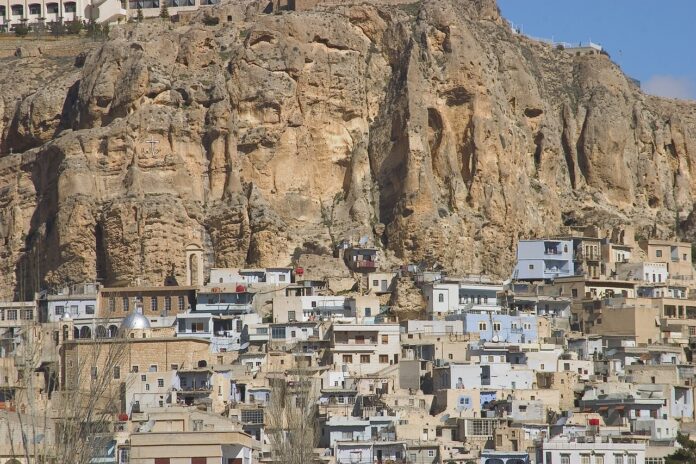24 Interesting Facts about Syria
- Location and Borders: Syria is located in the Middle East, in southwestern Asia. It is bordered by Turkey to the north, Iraq to the east, Jordan to the south, Israel to the southwest, and Lebanon to the west. The Mediterranean Sea lies to the northwest.
- Square: The country covers an area of approximately 185,180 square kilometers.
- National Currency: The currency of Syria is the Syrian Pound (SYP).
Interesting Facts about Syria:
- Syria is the largest country that emerged after the collapse of the Ottoman Empire. It is 250 kilometers from its border to Egypt, 120 kilometers to Cyprus, 700 kilometers to Greece, and about 650 kilometers to Russia.
- Archaeological findings indicate that civilization arose in present-day Syria over 6,000 years ago.
- Syria is a predominantly Muslim country, but about one-fifth of the population is Christian.
- Around nine percent of Syria’s population are Kurds, making them the largest stateless nation in the world.
- The Syrian Civil War is the deadliest conflict of the 21st century (after World War II). In five years of fighting, 450,000 people have died, and more than one million have been injured.
- The birth rate in the country is higher than in most neighboring countries and higher than the global average.
- School education in Syria is not only free but also compulsory. Unfortunately, about one-sixth of the adult population in Syria is still illiterate.
- In the early 21st century, Syria’s population was very young: nearly 30% of Syrians were under 15 years old, and more than 25% were between 15 and 30 years old.
- There is a small town in Syria called Maaloula, where residents still speak Aramaic, the language spoken by Jesus Christ.
- Syria ranks fourth among countries where Christian rights are most frequently violated, according to the “Open Doors” international Christian ranking.
- The only Pope in the world to visit a mosque was John Paul II, who visited the Umayyad Mosque in Damascus in 2001.
- Agriculture is an important source of income in Syria, providing employment opportunities for about a quarter of the population, including a significant portion of citizens.
- The export of the national currency is restricted in Syria. Currencies of other countries can freely enter and exit the country, but they cannot be used as a means of payment.
- If a passport contains an Israeli visa, its holder is not allowed entry into many Muslim countries, including Iran, Kuwait, Lebanon, Libya, Yemen, and Syria.
- The Kurdish language is often used in the northern part of the country. Other commonly spoken languages include Turkmen, Circassian (Adyghe), and Armenian.
- Wheat is the most important food crop, although its harvest is often affected by significant fluctuations in rainfall; the sugar beet harvest is also very important.
- Syria holds an important place in the history of Christianity – according to the Bible, Paul converted to Christianity on the road to Damascus and later lived in Antioch, where Christ’s disciples were first called Christians.
- The primary source of energy in Syria is local oil, and the domestic reserves of natural gas are becoming an increasingly important resource.
- The capital city, Damascus, is one of the oldest continuously inhabited cities in the world, with a history dating back thousands of years.
- Syria’s Aleppo was once a major trading center and one of the world’s oldest cities, known for its historical sites and rich cultural heritage.
- The ancient city of Palmyra, a UNESCO World Heritage site, was a significant cultural center in antiquity and contains monumental ruins.
- The Syrian cuisine is a delicious blend of Mediterranean, Greek, and Middle Eastern influences, with popular dishes like hummus, falafel, kebabs, and baklava.
- Syria has a rich tradition of arts and crafts, including intricate mosaic work, weaving, and pottery.
- The Euphrates River, one of the longest rivers in Western Asia, flows through Syria, providing vital water resources for agriculture and communities.
